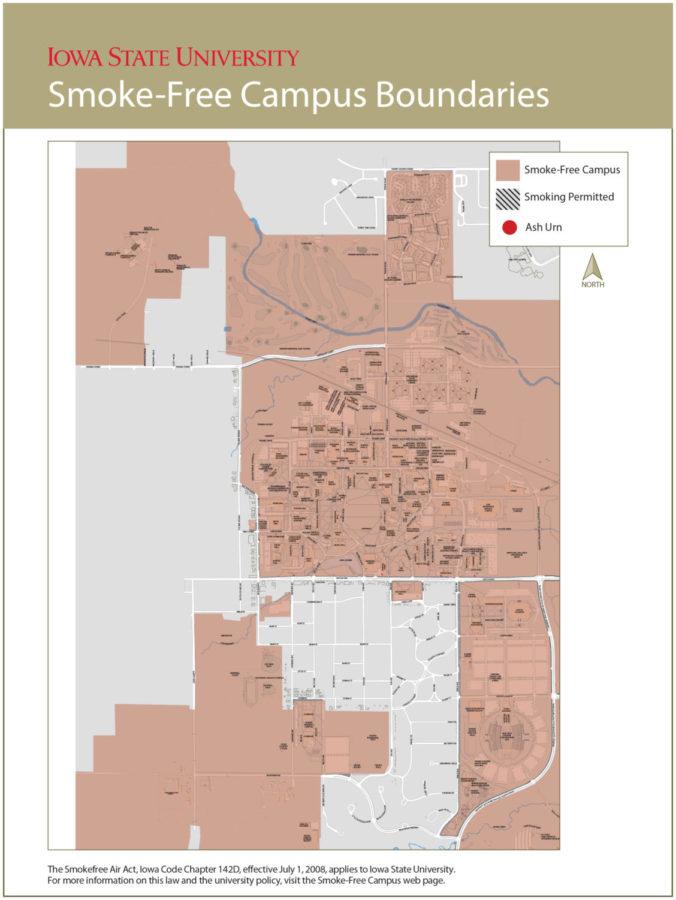Editorial: Legislators should support Tobacco to 21 Act
Smoke Free Zones Map
October 11, 2015
The national drinking age is in constant debate, but the national smoking age is not as often contested.
Tobacco use is the leading cause of preventable death in the United States and leads to about 500,000 premature deaths, according to the Centers for Disease Control and Prevention.
Massachusetts senators Elizabeth Warren and Edward Markey in early October announced their support for the Tobacco to 21 Act, a proposal that would raise the national legal tobacco smoking age by three years to 21.
About three-quarters of Americans favor raising the legal age of purchasing tobacco to be 21, including seven in 10 smokers, according to the American Journal of Preventative Medicine.
Raising the minimum legal age of tobacco product sales nationwide would cause, according to the Institute of Medicine at the National Academy of Medicine, 223,000 fewer premature deaths, 50,000 fewer deaths from lung cancer and 4.2 million fewer years of life lost and lead to a 12 percent decrease in the presence of smoking.
At least 10 senators from Hawaii, California, Illinois, Connecticut and Rhode Island support the bill, as reported in the Daily Free Press.
More lawmakers should get on board to support this initiative.
About 95 percent of adult smokers begin smoking before they turn 21, according to the National Institutes of Health, and 90 percent do so by 19, a time in people’s lives where parts of the brain most responsible for decision making, impulse control, sensation seeking and susceptibility to peer pressure develop, according to the Institute of Medicine report. Adolescent brains are uniquely vulnerable to the effects of nicotine and the majority of underage users rely on social sources, the report states.
While research from the Institute of Medicine shows raising the legal smoking age would result in 223,000 fewer premature deaths, the social implications could be more negative.
Raina Morris, 18, of Fenway, Mass., told the Daily Free Press, “It’ll just criminalize something that’s super trivial and create a whole issue of underage people whom are already addicted having to use illegal methods to get cigarettes.”
Some could argue that those who are 21 could still purchase tobacco products and provide to those underage, but the study from the Institute of Medicine, states raising the legal age to 21 will, “mean that those who can legally obtain tobacco are less likely to be in the same social networks as high school students.”
Billions of dollars swirl around the tobacco industry.
More than 42 million people in the U.S. smoke and tobacco use costs the U.S. about $170 billion in direct medical costs every year, according to the proposed bill, HR 3656, introduced on Sept. 30.
The Centers for Disease Control states that between 1998 and 2010, states have collected nearly $244 billion in cigarette taxes and settlement money, but only $8.1 billion has gone toward state tobacco control efforts.
Iowa State is already a smoke-free campus, thanks to the Smokefree Air act in 2008, but there are students, under the age of 21 nonetheless, who smoke, but just go off campus to do so. A recent policy change also includes the ban of e-cigarettes and personal vaporizers. The ISU community has the opportunity to give comment on the policy until Nov. 16.
Much like alcohol, people can argue that those of age are just going to provide those under age with supplies. Others may argue that individuals’ health and choices should remain in the hands of that individual.
But any step to improve the health of Americans is a necessary one. The public health impact of raising the legal age depends on how local and state governments respond.

















